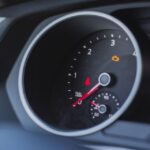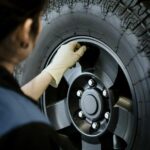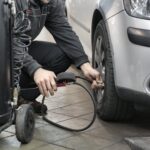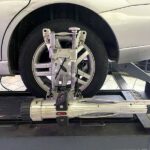As a car owner, there might be a few things you don’t know about your vehicle. This could be the reason why you end up at the mechanic more than often. Owning a car does not only mean knowing how to drive, but it is also important to know how to maintain your vehicle’s performance and boost its fuel economy.
Many people are moving towards the new electric vehicles because conventional cars have proven to be expensive when it comes to fuel costs. However, if your vehicle has a good fuel economy, you don’t necessarily have to shift to an electric vehicle. Even if you don’t want to pollute the environment by burning too much fuel, you can still drive around in a conventional vehicle that operates on petrol.
It’s simple; all you have to do is ensure your vehicle’s fuel economy is good. There are several ways to improve it and take advantage of the many benefits that fuel economy offers. This post discusses fuel economy and tips to improve your vehicle’s EPA Fuel Economy and Emissions label.
Continue reading on as this will surely help improve your vehicle’s performance and save you money.
What Is Fuel Economy?
The fuel economy of a vehicle basically relates to the distance traveled by the vehicle, and the specific amount of fuel consumed within that distance. This means if you take your car to work, the amount of fuel consumed in covering the distance between your home and office will determine the vehicle’s fuel economy.
How to Calculate Fuel Economy?
There is a way to express the consumption of the vehicle in terms of the volume of fuel to travel a certain distance. Manufacturers that produce the vehicles use a standard driving cycle, which helps in determining fuel consumption of a certain car. This basically consists of stimulation instead of testing the vehicle on the road.
The fuel economy of a vehicle plays an important role in decreasing or increasing air pollution. Many countries impose strict criteria for fuel economy to protect the environment. There are different methods to approximate a vehicle’s performance.
The fuel energy helps overcome various losses, such as wind resistance, tire drag, etc. while propelling the car. It is also important for providing power to the vehicle’s systems, such as air conditioning or ignition. How you drive the car can affect your vehicle’s fuel economy. For instance, heavy braking or sudden acceleration will waste your car’s fuel energy.
How to Improve Fuel Economy?
There are several reasons for your vehicle’s fuel economy to decrease. However, there are also many ways you can prevent this from happening and also boost fuel economy. It doesn’t matter if your car is new or old; the following steps will surely improve your vehicle’s fuel consumption.
Always Check Your Gas Cap
This is a common mishap that happens with a lot of car owners. They fill their tanks up but forget to put the gas cap on properly and sometimes even forget to put it on. Well, if you do this, it will certainly reduce gas mileage and can also be harmful to the environment due to the harmful fuels escaping from the tank. An easy fix for this situation is always to keep an eye on your check engine light. Other than this, make sure your gas cap isn’t faulty; if it is, you can buy a new one, and it won’t even be expensive.
Use a Front End Alignment
You must be wondering what this is for, well, certain driving conditions can throw your vehicle’s wheel alignment off. This issue forces the tires to work extra and wear out faster. Moreover, the engine will work harder too, which ultimately reduces gas mileage. You may notice your steering wheel is off-center or the car moves to one side, this is when you should get an alignment immediately.
Use the Right Vehicle Oil
It is important to use the right motor oil for your vehicle’s motor. It is best to opt for the oil your vehicle manufacturer recommends. It doesn’t matter if you do it yourself or head to the mechanic for an oil change, be sure to use the right oil always as it will optimize the performance of your vehicle and boost your fuel economy.
A Tune-Up Is Always Helpful
Why do you think car owners often head to get a tune-up? It’s simply because a tune-up can improve the vehicle’s performance. It improves the functionality of every component and thus can boost the fuel economy of your vehicle. Next time you feel something in your vehicle is a bit off, head down to the mechanic for a tune-up.
Reduce the Weight
Any vehicle manufacturer will let you know that if your car carries loads of weight, this will reduce your vehicle’s fuel economy. Always make sure to follow the weight limit set by your manufacturer, and when you don’t need the extra weight, take it out.
You’ll notice a boost in your vehicle’s fuel economy by 1 or 2 percent when there is no extra weight.
Turn the Engine off When at Stop
This is a common habit amongst vehicle drivers, as whenever the car comes to a halt, they keep their engines running. If you want to save gas, you can simply turn off the engine whenever you are waiting in a spot. Also, avoid warming up your vehicle whenever you start it, you’ll only waste fuel by doing this.
Rest Your Left Foot Somewhere Else
Many people rest their left foot on the brakes when they are in the driving seat. This habit can damage your brakes slowly and also have an adverse effect on your vehicle’s fuel economy. Therefore, if you have this habit, try to avoid doing this as you’ll save fuel.
Drive Peacefully
When we say drive peacefully, we simply mean, don’t rush your engine. Avoid driving your vehicle at higher speeds; try to slow down whenever possible, especially on the highway. This doesn’t mean you should drive really slow, but don’t go over the speed limit and keep it as slow as possible without annoying anyone behind you.
Service and Maintenance
We all know taking your car all the way to the mechanic, sitting there and waiting for them to tune your car can be a bit hectic. And of course, you have to pay for their services every time. However, this is something you have to do to prevent your vehicle from losing its performance and increase fuel consumption.
Therefore, whenever you get the chance, take your car for a quick service and maintenance check to ensure your vehicle is in good condition.
Benefits of Improving Fuel Economy
There are certainly no drawbacks to doing this, except it may cost you here and there. However, overall, following the right steps to improve your vehicle’s fuel economy will certainly benefit you and your vehicle. Here are a few benefits mentioned below;
Save Money
Of course, if your car isn’t burning excess fuel, you’ll be saving fuel and won’t have to fill your tank every time you head out.
Better Environment
Burning more fuel pollutes the air and harms the environment. By improving your fuel economy, your car will burn less fuel and ultimately won’t damage the environment.
Better Performance
Well, if your vehicle fuel economy is good, the performance will gradually improve as well. A good fuel economy indicates that the vehicle is in good condition. Therefore, you won’t have to worry about burning excessive fuel or wasting energy.
Bottom Line
As you can see, the fuel economy of a vehicle is very important. Therefore, every car owner must know these facts and ways to improve fuel economy. The steps mentioned above are very easy to implement and are a great way to boost your car’s fuel economy. Follow these steps wisely, and you’ll see how your vehicle’s performance becomes way better than before.
Other than this, by focusing on your fuel economy, you save yourself from other complications such as major issues within the car. By scheduling tune-ups and services, your vehicle will remain in good condition, and you’ll know if any severe issue comes up, which needs attention right away. Visit BudgetMotorsReno.com and blog.budgetmotorsreno.com









